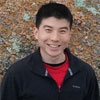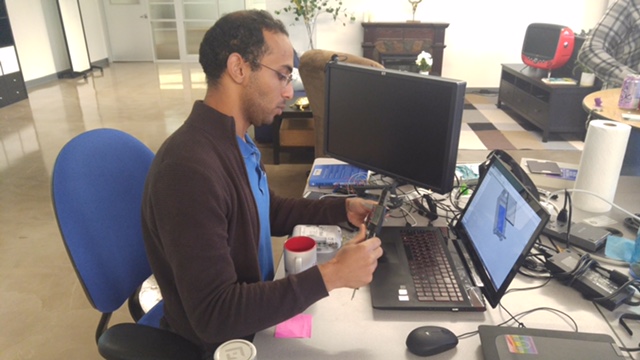The AT&T Foundry is a special place. It’s a flexible and agile part of a Fortune 10 communications and media company. One benefit of an agile and open environment is often faster project launches – think months versus years.
Our goal is to move ideas to the marketplace up to 3x faster than other methods. That means work on proof of concepts can start and finish faster. And failure or success is defined sooner. The collaborative environment also welcomes our work with other companies.
Get to know Mohamed Elmahdy, a biomedical engineer at the AT&T Foundry for connected health in Houston, below.
What are you working on now?
As a biomedical engineer at the AT&T Foundry for connected health in Houston, my role is to develop hardware solutions for the medical devices we use in our projects. I’m currently exploring innovative sensors, materials and electronics for medical devices. All of these can enhance their functionality and give people more data. This work includes using tools to outfit and make cellular-enabled medical devices, like wearable devices or connected pill packs.
How did you get your job?
As I neared the end of grad school, I applied to an online posting for an opening at the Foundry. AT&T IoT Foundry Director Craig Lee interviewed me 5 days after my thesis defense at school. I got my acceptance letter the day of my graduation and one week before my wedding. It was an exciting couple of months for me.
I had no idea what to expect from this job. The versatility of the position, company exposure and innovative nature of the projects intrigued me. So far, all of these aspects are true to the job.
What do you love most about coming to work?
I love the exposure to biomedical companies and startups. I enjoy learning about their technologies and solutions. It’s exciting to be part of an industry at the cutting edge of technology and innovation. What’s even more exciting is to be part of a combination of industries—communications, media and health care. I’m a constant learner, so having a job that pushes me to do so on a daily basis is a real fit for me.
Where do you see the technology you focus on going in the next few years?
As remote patient monitoring, telemedicine and cloud analytics solutions continue to evolve and expand, we believe the new era of medicine will be a reality within the next few years.
I think technology like video voice mails will make the process of making and responding to non-emergency calls more convenient for both patients and doctors.
Think of how much more prevalent email and texting is than calling someone these days. In the same vein, for health inquiries that are minor, I am hoping the adoption of these newer techniques will help reduce the load on emergency rooms.
Exploring new ways to better track a patient’s overall health and progress is an exciting challenge for us.
What do you do outside of work for fun?
I like to stay active. I bike, run, play basketball and generally do whatever it takes to get my heart pumping.
Mohamed joined AT&T in March 2016. He graduated from the University of Houston with a PhD in Biomedical Engineering. Stay tuned for more from our innovators inside the AT&T Foundry.

James Yu, Biomedical Software Design Engineer
